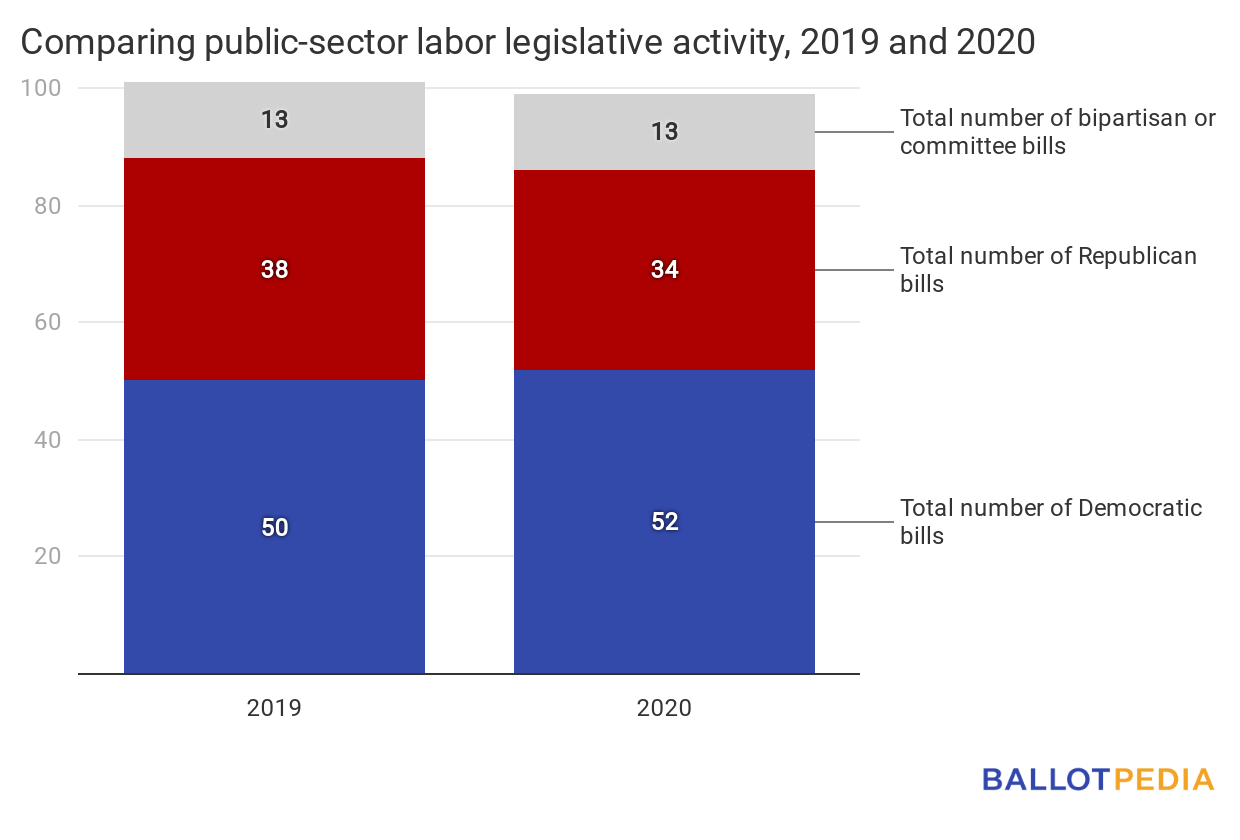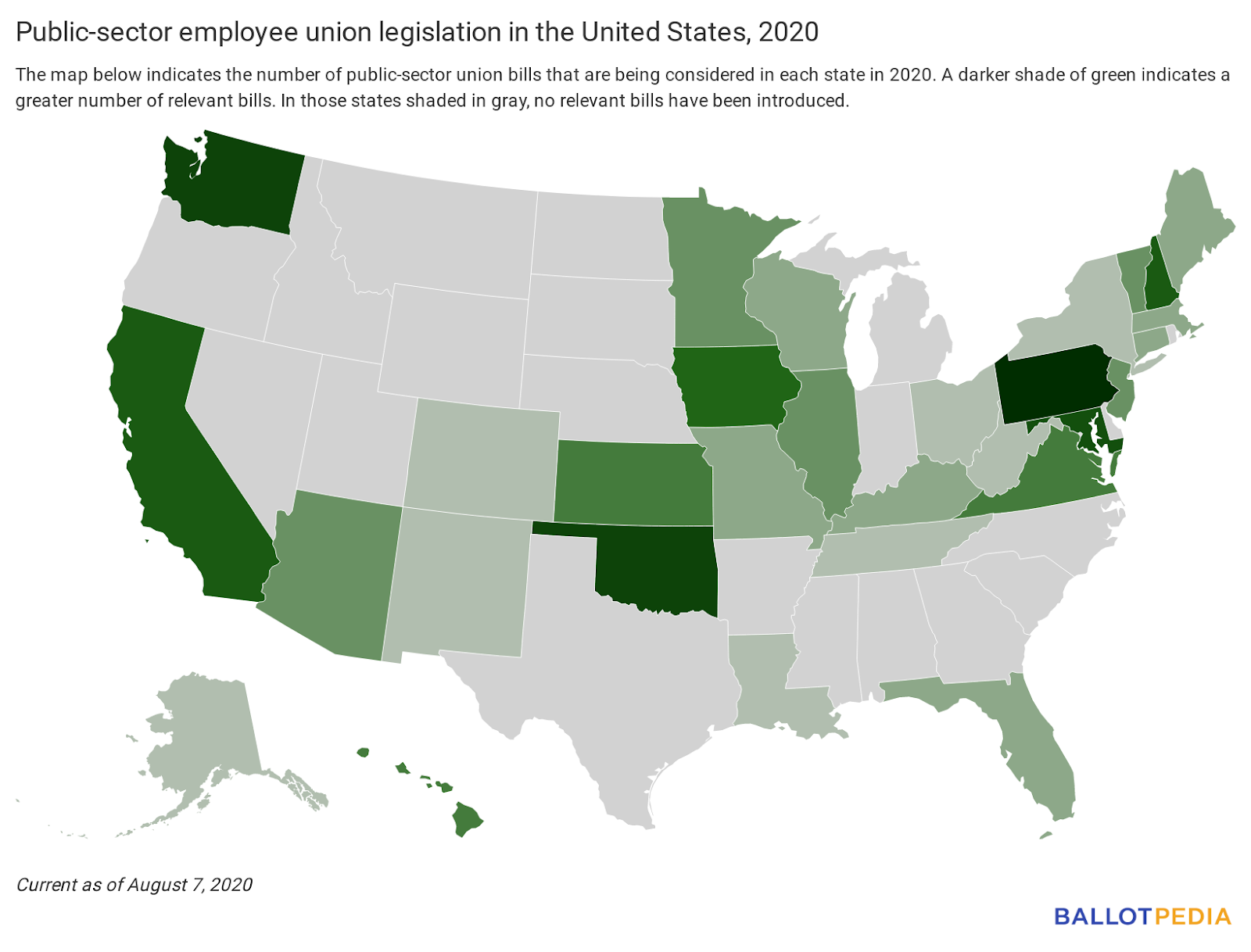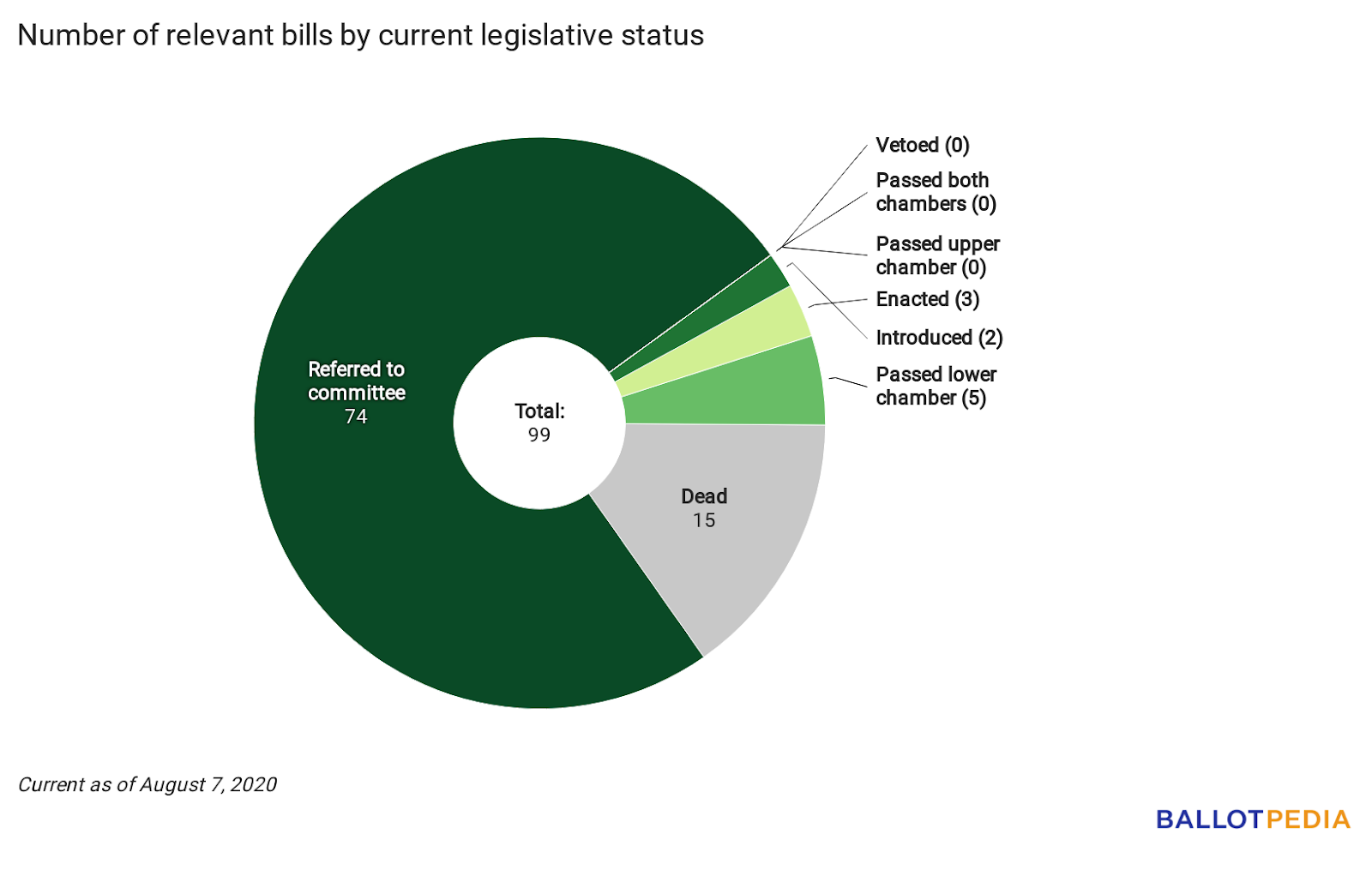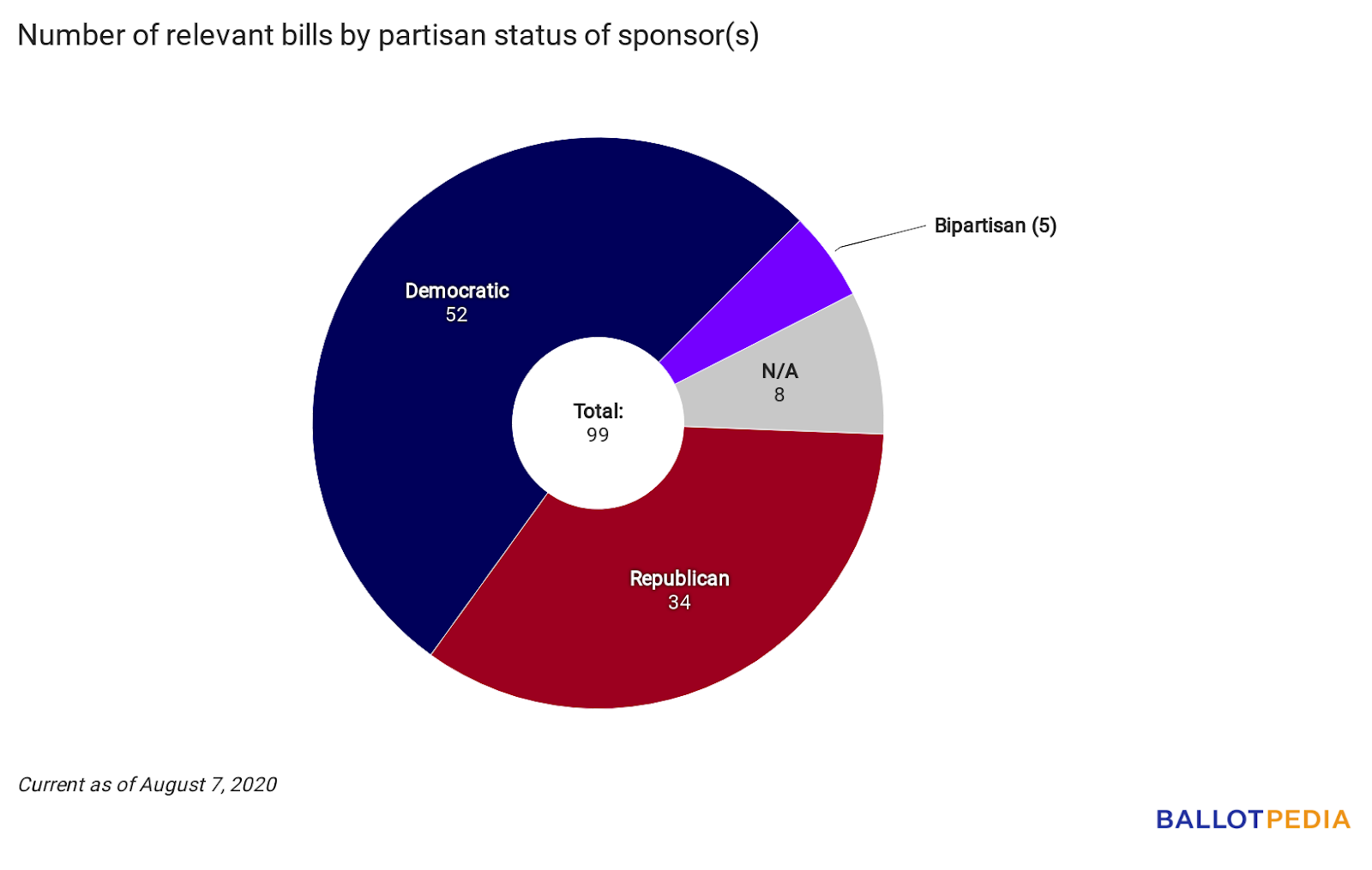Comparing legislative activity in 2020 and 2019
In this week's edition, we compare legislative activity on public-sector labor issues in the first seven months of 2020 with activity during the same period in 2019.
2019 legislative activity, January through July
In the first seven months of 2019, legislatures nationwide took up 101 bills related to public-sector labor policy. Seven became law.
- Total number of bills introduced or carried over from prior sessions: 101
- Bills sponsored by Democrats: 50
- Bills sponsored by Republicans: 38
- Bills sponsored by bipartisan groups: 6
- Bills sponsored by committees: 7
- Total number of enacted bills: 7
- Illinois SB1784: This bill requires that public-sector union representatives be granted an opportunity to meet with new hires. It requires employers to furnish unions with worker information, including addresses, contact numbers, and email addresses. It also permits unions to limit the period during which members can resign and rescind dues deduction authorizations.
- Nevada SB135: This bill provides for collective bargaining rights for state employees.
- Oregon HB3009: This bill requires public employers to provide unions with access to new employees. This bill also permits individuals who are not union members to make payments in lieu of dues to unions.
- Oregon HB2016: This bill requires public employers to grant paid time to employees participating in certain union activities. It also requires employers to furnish unions with access to employees.
- Rhode Island H5259: This bill authorizes unions to impose fees on non-members for administrative matters.
- Rhode Island S0712: This bill authorizes unions to impose fees on non-members for administrative matters. It requires employers to notify unions within five days of hiring new employees. It also requires employees to file written notice with the state controller in order to discontinue dues payroll deductions.
- Washington HB1575: This bill declares that public employers and public-sector unions are not liable for claims involving agency fees paid to unions before Janus. It repealed statutes requiring employees to join unions or pay dues as a condition of employment. It also amends dues deduction authorization laws, allowing authorizations to be initiated via electronic, voice, or written communication. It also requires authorizations to be discontinued by a written request made to the union.
- States with the most legislative activity:
- Oregon: 10 bills
- Pennsylvania: 9 bills
- Washington: 8 bills
- Massachusetts: 6 bills
- New Hampshire: 6 bills
- Oklahoma: 5 bills
2020 legislative activity, January through July
In the first seven months of 2020, legislatures nationwide have taken up 99 bills related to public-sector labor policy. This is roughly on par with the number of relevant bills taken up during the same period in 2019. Three bills became law.
Although sessions in many states were either suspended or otherwise affected as a result of the COVID-19 outbreak, the similarity between the total number of bills introduced or carried over in 2019 and 2020 shows that most of this activity occurs in the first two or three months of the year when legislatures first convene.
- Total number of bills introduced or carried over from prior sessions: 99
- Bills sponsored by Democrats: 52
- Bills sponsored by Republicans: 34
- Bills sponsored by bipartisan groups: 5
- Bills sponsored by committees: 8
- Total number of enacted bills: 3
- Virginia HB582: This bill repealed an existing ban on collective bargaining by public employees.
- Virginia SB939: This bill permitted local governments to recognize unions as bargaining agents for public-sector workers.
- Washington HB2017: This bill established collective bargaining rights for administrative law judges.
- States with the most legislative activity:
- Pennsylvania: 10 bills
- Oklahoma: 8 bills
- Washington: 8 bills
- Maryland: 7 bills
- California: 6 bills
- New Hampshire: 6 bills
The stacked bar chart below compares the 2019 and 2020 figures by partisan affiliation of bill sponsors.

What we're reading
- The Center Square, "Pennsylvania public sector union facing eighth lawsuit over paycheck deductions," Aug. 6, 2020
- California Globe, "The Financial Power of California’s Government Unions," Aug. 5, 2020
- Labor Notes, "Remember the Public Sector in the Fight for Black Lives," Aug. 5, 2020
The big picture
Number of relevant bills by state
We are currently tracking 99 pieces of legislation dealing with public-sector employee union policy. On the map below, a darker shade of green indicates a greater number of relevant bills. Click here for a complete list of all the bills we're tracking.

Number of relevant bills by current legislative status

Number of relevant bills by partisan status of sponsor(s)

Recent legislative actions
- California AB2850: This bill would specify that the Public Employment Relations Board has jurisdiction to enforce statutory provisions governing employer-employee relations within the San Francisco Bay Area Rapid Transit District.
- Democratic sponsorship.
- Senate Labor, Public Employment and Retirement Committee hearing, scheduled Aug. 5, postponed.


